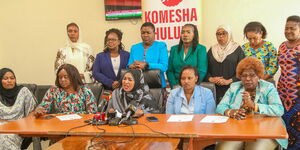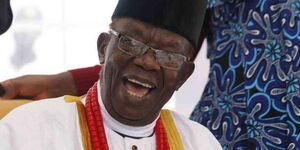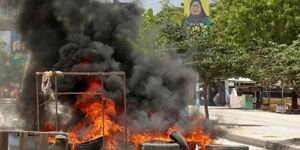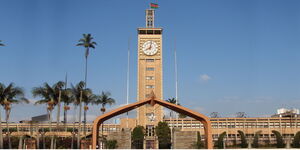The International Monetary Fund has revealed that it will be sending its officials to Kenya to audit corruption cases in the nation's government.
Speaking during a press briefing on Friday, October 25, IMF's African Department Director Abebe Aemro Selassie revealed that the IMF has welcomed the request made by the state for the Fund to spearhead the audit and will be sending their officials.
"IMF has welcomed Kenya's request for a diagnostic assessment. It will be sending a team out to basically see what areas of weaknesses and strengths Kenya has relative to other countries in terms of how public accounts are accounted for," Mr. Selassie stated.
The move by the IMF comes after the Kenyan Government requested IMF to conduct an official review of the country’s corruption and governance issues.
“We need to take the fight against corruption a notch higher and cast away the spirit of corruption. The war on corruption has taken a long time. We must ask ourselves where corruption is domiciled so that we can tackle it head-on,” Prime Cabinet Secretary Musalia Mudavadi said on October 8.
While the IMF is sending its officials, it has questioned how efficiently and effectively government resources are being used in Kenya. Mr Selassie challenged the Ruto-led government to promote transparency in how taxpayers' money is used to build the confidence of Kenyans in its governance.
"I think promoting transparency, showing to what purpose government resources are being used in a much more effective way than has been the case, would help in the long run effort to generate tax revenue," Selassie noted.
IMF has further revealed that they are looking forward to working with the government in a very constructive way and providing some ideas, and some thoughts on what could be done.
Selassie was accompanied by IMF Kwabena Akuamoah-Boateng, IMF communications officer, during a press briefing on the Regional Economic Outlook for Sub-Saharan Africa.
The need for an audit on Kenyan corruption comes after President William Ruto faced pressure from young protesters demanding accountability and pledged in July to propose changes to the relevant law to seal the loopholes that undermine the fight against corruption.
Speaking on the borrowing spike of Kenya, the IMF has noted that not only Kenya but all countries should ensure their borrowing cost remains at a healthy level.
"So, if countries are borrowing at 8, 9, 10 per cent for the entirety of their debt stock, you pretty soon are going to get into debt problems because that will tend to be much higher than the growth rates that that countries have." Mr, Selassie noted.












